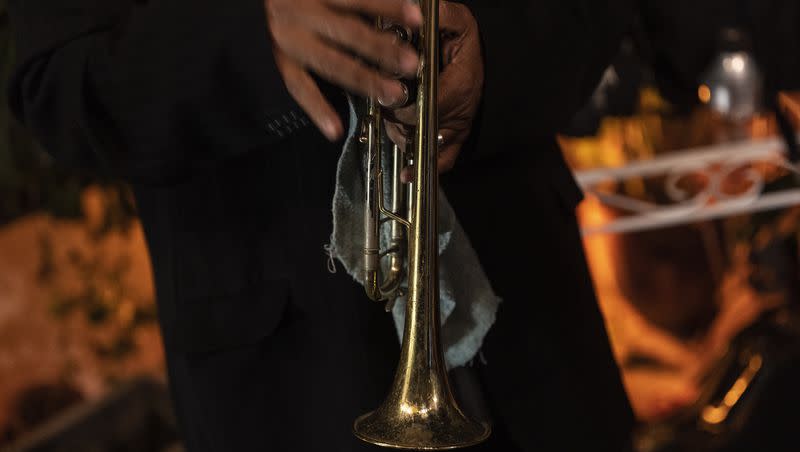How playing an instrument improves brain health

Music should be considered an easy, accessible way to maintain the brain, according to a study published in the International Journal of Geriatric Psychiatry.
What did the study look at?
Scientists at the University of Exeter researched how brains age and why people develop dementia. When looking at their brain function data, they found some interesting information, according to the BBC.
Using their work with more than 1,100 people over age 40, with a mean age of 68, the researchers compared the cognitive data of those who engaged in music to those who had not. The category of engaging in music included paying an instrument, reading and listening to music, singing and general musical ability, per the study.
“Because we have such sensitive brain tests for this study, we are able to look at individual aspects of the brain function, such as short-term memory, long-term memory and problem-solving and how engaging music affects that,” Anne Corbett, lead author of the study, told the BBC.
What were the results?
Researchers found people who played musical instruments had significantly better performance in working memory and executive function. This result is possibly because of the “multiple cognitive demands” of the activity, according to the BBC.
Other findings from the study include:
Playing the piano or keyboard appeared to be of most value for brain cognition.
Brass and woodwind instruments were good for brain cognition (but not better than the piano).
Simply listening to music did not help cognitive health.
Singing is shown to benefit brain cognition but it could be due to the social aspect of being in a choir.
Corbett said, “This message is around how people can proactively reduce their risk of cognitive decline or dementia, and really thinking about engaging with music as a way of doing that. This study does suggest that it could be part of a much wider lifestyle approach to improving brain health as you age,” to the BBC.
How to get involved with music
Though taking up a musical instrument does not stop dementia from developing, the results are still positive, according to Dementia UK.
However, if you have not picked up an instrument before, starting one now can be quite daunting. Moises has a few tips for beginners:
Choose a musical instrument.
Giving some thought before picking an instrument can help. Consider choosing based on the style of music you enjoy, ease of use or a near-forgotten interest you had as a child.
Define how you will study.
It is possible to learn to play an instrument by using online content at home. But being taught by a teacher or professional might be a better option if you want to improve finer details and technique from the start.
Focus on music theory learning.
Focusing on theory can help you understand the structure of music, develop awareness of sounds and understand hand movement for easier learning.
Practice and persist.
The process of learning an instrument takes time. Spending time practicing allows for development and a refinement of technique.
Find a motivation.
To keep yourself excited about learning an instrument or new songs, envision why you started. Creating goals inspired by our vision help us have something to work on and work toward.

